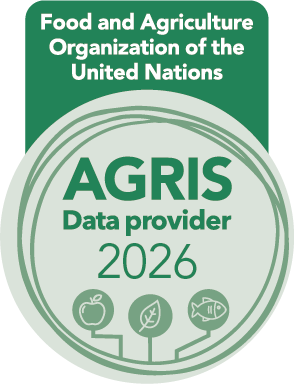Medicinal Plants as a Potential Strategy to Reduce Greenhouse Gas Concentration Under Egyptian Conditions
DOI:
https://doi.org/10.5455/faa.195330Keywords:
Greenhouse gas, Moringa, Pecan, Carbon dioxide, SequestrationAbstract
The earth’s climate is changing because of the increase in greenhouse gas (GHG) concentration. Carbon dioxide (CO2) is the primary greenhouse gas contributing to recent climate change. The study was carried out in 2019 and 2020 on six-year-old trees of moringa (M. oleifera) and pecan (C. illinoinensis) in two governorates of Egypt (Al-Dakahlia and El-Bihera) to investigate the potential effect of M. oleifera and C. illinoinensis trees on reducing greenhouse gas such as carbon dioxide. The results indicate that growth performance [plant height (m), diameter (m), volume (m3), and biomass (kg/tree)]; carbon content (kg/tree), and carbon dioxide sequestration/tree (kg/tree) of M. oleifera was significantly higher (P ≤ 0.05) as compared to C. illinoinensis. Similarly, the maximum sequestration of CO2 was recorded (97.60 and 111.70 Kg/tree) for M. oleifera in 2019 and 2020, respectively. M. oleifera was the dominant tree in growth, carbon stock, and carbon sequestration than the other species (C. illinoensis). Therefore, M. oleifera can be recommended as a potential crop to mitigate global warming.
Downloads
Downloads
Published
How to Cite
Issue
Section
License
Copyright (c) 2024 By the Author(s)

This work is licensed under a Creative Commons Attribution-NonCommercial 4.0 International License.





















